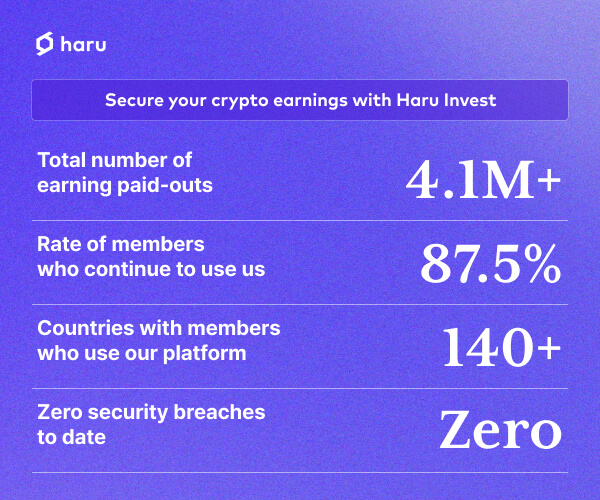
Coinbase CEO Brian Armstrong published a Dec. 20 blueprint on regulating centralized actors in the crypto space while protecting decentralized innovations.
Armstrong opined that regulating centralized entities like exchanges, stablecoin issuers, and crypto custodians would be the best thing for the industry. He said:
“This is where we’ve seen the most risk of consumer harm, and pretty much everyone can agree it should be done. It’s the low hanging fruit.”
Armstrong on stablecoin issuers
Armstrong added that there was already some momentum in regulating stablecoin issuers and hopes this happens during the first half of 2023. According to him, stablecoin issuers don’t have to be banks, except they offer fractional reserves lending or invest in riskier assets.
He recommended that stablecoin issuers register as a state trust or OCC national trust charter. He added that these issuers must have rigorous annual audits, reasonable board controls and governance, blacklisting capability to meet sanctions requirements, and meet basic cybersecurity standards.
How centralized exchanges and custodians should be regulated
On centralized exchanges and custodians, Armstrong noted that regulations for these entities should focus on implementing robust know-your-customer (KYC) and anti-money laundering (AML) policies and procedures.
Apart from that, their regulations should create a federal licensing regime where one license is enough to operate in one country. Other rules advised include strong consumer protection laws, standards for safeguarding clients’ assets, and prohibition of market manipulation.
Armstrong on crypto assets classification
The Coinbase CEO also gave his thoughts on how regulators like the SEC and CFTC can determine if an asset is a security or commodity. He proposed a “modern-day Howey Test for cryptocurrency,” which would determine if an asset should be considered a security.
Financial regulators in the U.S. have faced criticism from crypto stakeholders over their failure to provide regulatory clarity on token classification. The CFTC recently declared that Bitcoin (BTC), Ethereum (ETH), and Tether (USDT) could be classified as commodities.
“Congress should also require the CFTC and SEC to clearly publish their categorization of the top 100 crypto assets by market cap within 90 days of the above legislation being enacted, declaring whether each asset is a commodity, security, or “other” (such as a stablecoin).”
Meanwhile, Armstrong believes the U.S. Congress should pass legislation that would better guide industry players.
Local and foreign players should be regulated evenly
Additionally, he highlighted a need to enforce a level playing field for both local and foreign players in the industry. According to him, foreign companies serving citizens of a country should be made to comply with local regulations.
Citing FTX’s collapse as an example, Armstrong said without such a level playing field; crypto companies would continue the practice of going to favorable overseas jurisdictions. This gives such entities an advantage over the domestic companies that have to comply with the rules.
However, he argued that decentralized entities should not be regulated and allowed to innovate. “With the decentralized aspects of crypto, we have an opportunity to create even stronger consumer protections,” he added.
Credit: Source link






















 Bitcoin
Bitcoin  Ethereum
Ethereum  XRP
XRP  Tether
Tether  Solana
Solana  USDC
USDC  Dogecoin
Dogecoin  Cardano
Cardano  Lido Staked Ether
Lido Staked Ether  TRON
TRON  Wrapped Bitcoin
Wrapped Bitcoin  Wrapped stETH
Wrapped stETH  Chainlink
Chainlink  Avalanche
Avalanche  Sui
Sui  Stellar
Stellar  Litecoin
Litecoin  Toncoin
Toncoin  Shiba Inu
Shiba Inu  Hedera
Hedera  LEO Token
LEO Token  USDS
USDS  Hyperliquid
Hyperliquid  WETH
WETH  Polkadot
Polkadot  MANTRA
MANTRA  Bitcoin Cash
Bitcoin Cash  Bitget Token
Bitget Token  Ethena USDe
Ethena USDe  Wrapped eETH
Wrapped eETH  Uniswap
Uniswap  Monero
Monero  NEAR Protocol
NEAR Protocol  Pepe
Pepe  WhiteBIT Coin
WhiteBIT Coin  Aave
Aave  Ondo
Ondo  Bittensor
Bittensor  Aptos
Aptos  Internet Computer
Internet Computer  Dai
Dai  Official Trump
Official Trump  Mantle
Mantle  Ethereum Classic
Ethereum Classic  Tokenize Xchange
Tokenize Xchange  OKB
OKB  Gate
Gate  sUSDS
sUSDS  Coinbase Wrapped BTC
Coinbase Wrapped BTC 
